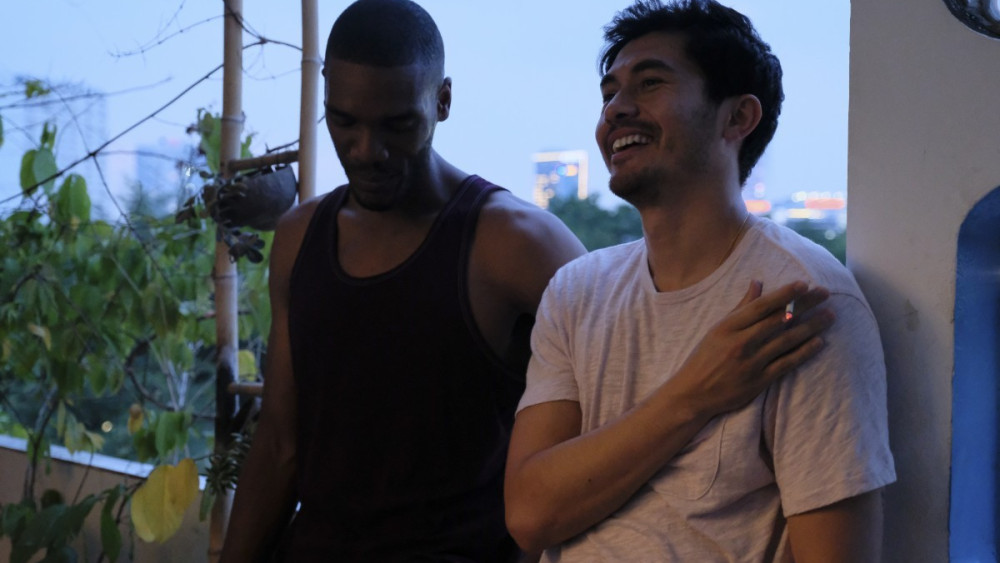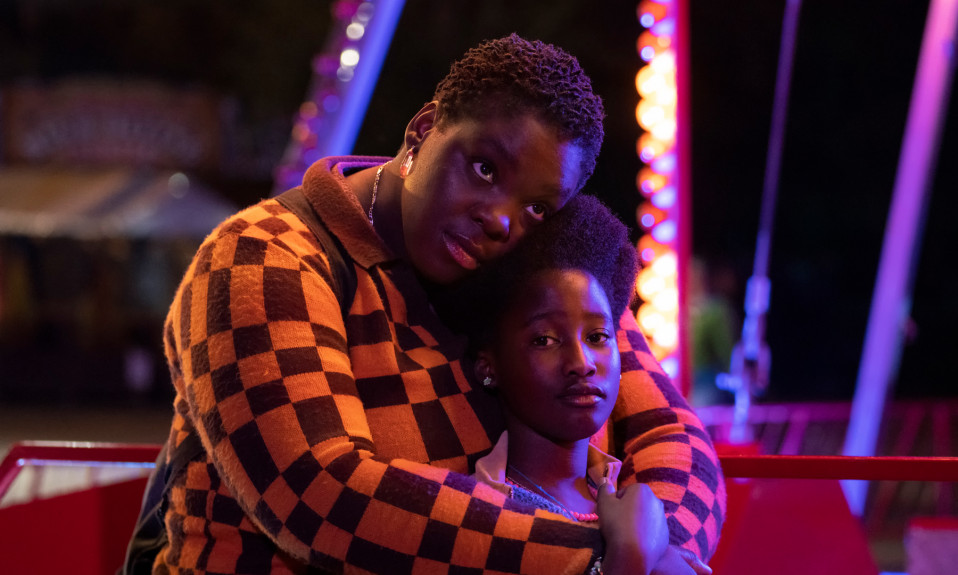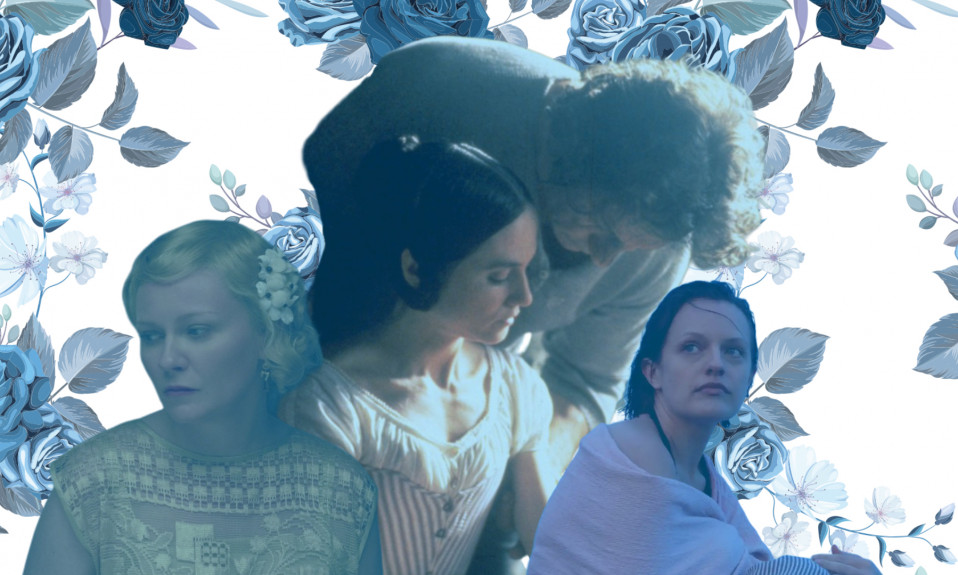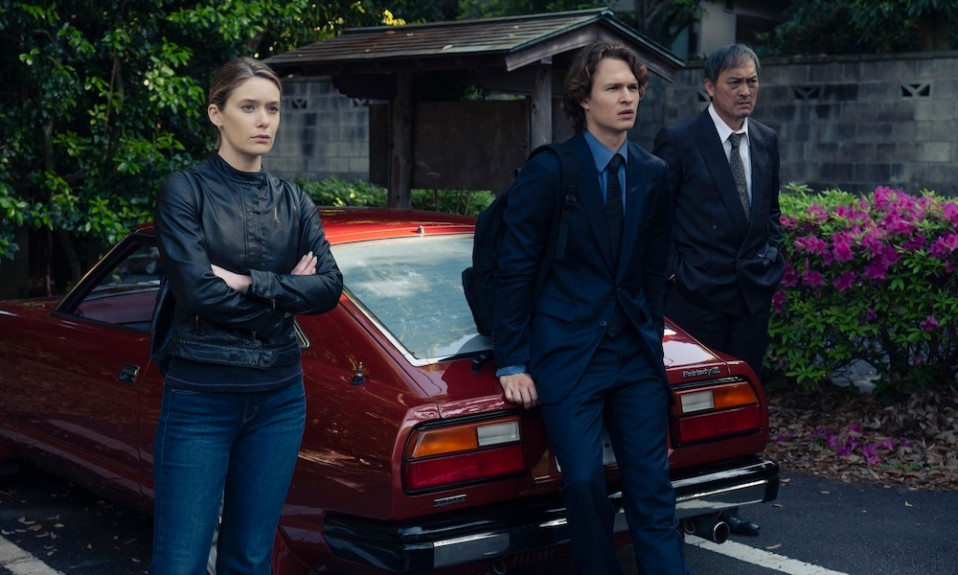Monsoon begins at a junction. The cars pass, slowly and orderly, before mopeds and vans swirl into the mix. Chaos fills the road with no markings, no sense of order, but yet there is no catastrophe only narrow misses and swerving bikes. The camera rises up, higher and higher, enlarging the scope of the madness, of the disorder, before cutting to Kit (Henry Goulding), who sits in a taxi, on his way to a hotel.
Kit has returned to Vietnam after 30 years in England. His family escaped during the war after his father was arrested when Kit was only six. He is back in Saigon to find a location to spread his mother’s ashes but he finds that the little he does remember of his once home is gone – the small pond behind the flat he grew up in where he used to play, has been filled in and built over and the building the flat is in is likely to be knocked down in due course. He remembers flashes, brief and small images from his short time in Saigon, but he lacks more than that. When his family fled they burnt all their family photographs to protect those closest to them, so they couldn’t be identified.

While in Saigon, Kit meets Lewis (Parker Sawyers), an American man in Vietnam to set up his clothing company ‘Curve’ – so named because Lewis is ‘not straight’. The two meet for a drink on a rooftop bar, discussing their online dating profiles, before heading back to Kit’s hotel room. They kiss, take off their shirts, and it feels like it might be leading somewhere but the film cuts to the two men, post-sex. It’s disappointing that the sex in Monsoon is so regulated, with each scene cutting away before anything really raunchy or even tender happens. The only scene with any hint of actual sex is during a hook-up Kit has on a trip to Hanoi, as he turns his lover around and kicks aside his leg in a move of aggressive sexuality.
This is an all too common problem for queer cinema; figuring out who it is appealing to, a queer audience or a straight one? Sex scenes, like those in Call Me By Your Name or Brokeback Mountain, are short and relatively un-sexual in their sparseness to keep a straight audience interested and the former came under fire for watering down the famous ‘peach scene’ from the book. In the case of Monsoon, it feels the director and writer, Hong Khaou, wanted the sex but worried about alienating a straight audience which leaves the film feeling somewhat censored, as if there are parts missing. Especially in contrast to the other queer film’s screening at the festival like Levan Akin’s And Then We Danced which is deeply erotic and charged, the tender nudity in Céline Sciamma’s Portrait of a Lady on Fire, or the full-framed rawness of the sex in Lucio Castro’s End of the Century.
Goulding and Sawyers have good chemistry and their scenes together do feel the most real and warm, their flirting feels playful and sweet. Goulding’s performance in-particular is quiet and brooding most of the time which adds another string to the bow of a man who’s already been compared to Clark Gable. Yet something feels like it’s missing (and it’s not just the sex).

Hong Khaou’s debut film Lilting in 2014 was about a young gay man living in London trying to form a connection with the mother of his dead boyfriend. It was a deep and rich film that delicately unravelled itself before your eyes. In this way, Khaou’s films feel like they are about translation; of language, of emotion, of experience. They find themselves within a world of shifting cultures and personal hardships. They’re often quiet, still, and creeping. They look at disconnection and wonder what fills that gap between people. They look at loss and how it wraps itself around you and consumes you. Yet, Monsoon doesn’t quite live up to the emotional weight of Lilting nor does it seem to have the same focus or drive. It loses itself in what it’s trying to say and ultimately never quite makes its mark. It’s hampered by dialogue that is riddled with exposition. As such it never really feels like the film is in the moment and, as an audience, we’re being asked to catch up constantly.
As emphasised by its impressive opening shot, Benjamin Kracun’s cinematography is the film’s strongest asset. The slow-moving or often still camera compliments Kit’s position – stuck between England and Vietnam, between past and future. He is mysterious and doesn’t reveal his cards right away and the camera does the same, its slow pans and stationary shots of skyscrapers don’t reveal their intention immediately, but cause you to wonder and guess at their meaning in a way that feels considered and intentionally vague. Kracun, whose recent credits include the dark thriller Beast and the rave oriented Beats, is certainly one to watch.
Despite its stronger moments, Monsoon unfortunately doesn’t feel like a worthy follow-up to Lilting. Instead, it finds itself lost somewhere between romance and family drama, unable to really make an impact in either category. While the chemistry of its two leads is, at times, palpable it’s not enough to turn it into the Before Sunrise or Columbus it feels like it wants to be.
Rating:  (2 / 5)
(2 / 5)
Monsoon will be distributed by Peccadillo Pictures.
A release date has yet to be announced.
Also Read: Understanding The British Rom-Com





![Online Film Festivals [Source Freepik and Wikipedia]](https://bigpicturefilmclub.com/wp-content/uploads/2021/01/online-film-festivals-Source-Freepik-and-Wikipedia-958x575.jpeg)








